14 Educational Wins That Have Nothing to Do With Grades
Academic scores are only one part of the educational journey. True learning extends far beyond test results, shaping character, resilience, and vital life skills. Success in school can mean developing empathy, creativity, or perseverance—qualities that shape future leaders and thoughtful citizens. Embracing a broader view of education helps foster well-rounded individuals prepared for real-world challenges.
1. Developing Critical Thinking Skills

Learning to analyze, question, and reason equips students with essential critical thinking skills. Engaging in debates on current events or tackling open-ended problems sharpens mental agility and the ability to assess information thoughtfully. These competencies are invaluable in both academic and professional settings. Critical thinking is one of the most in-demand skills for the future workforce, empowering individuals to navigate complex challenges confidently.
2. Building Resilience

Resilience is the ability to recover from setbacks, whether it’s persevering through a tough assignment or managing disappointment. Developing this trait in school helps students face future challenges with confidence and adaptability. Resilience is a key component of lifelong success, enabling individuals to navigate adversity and grow stronger in the process. Building resilience prepares students for both academic and real-world obstacles.
3. Improving Communication Abilities
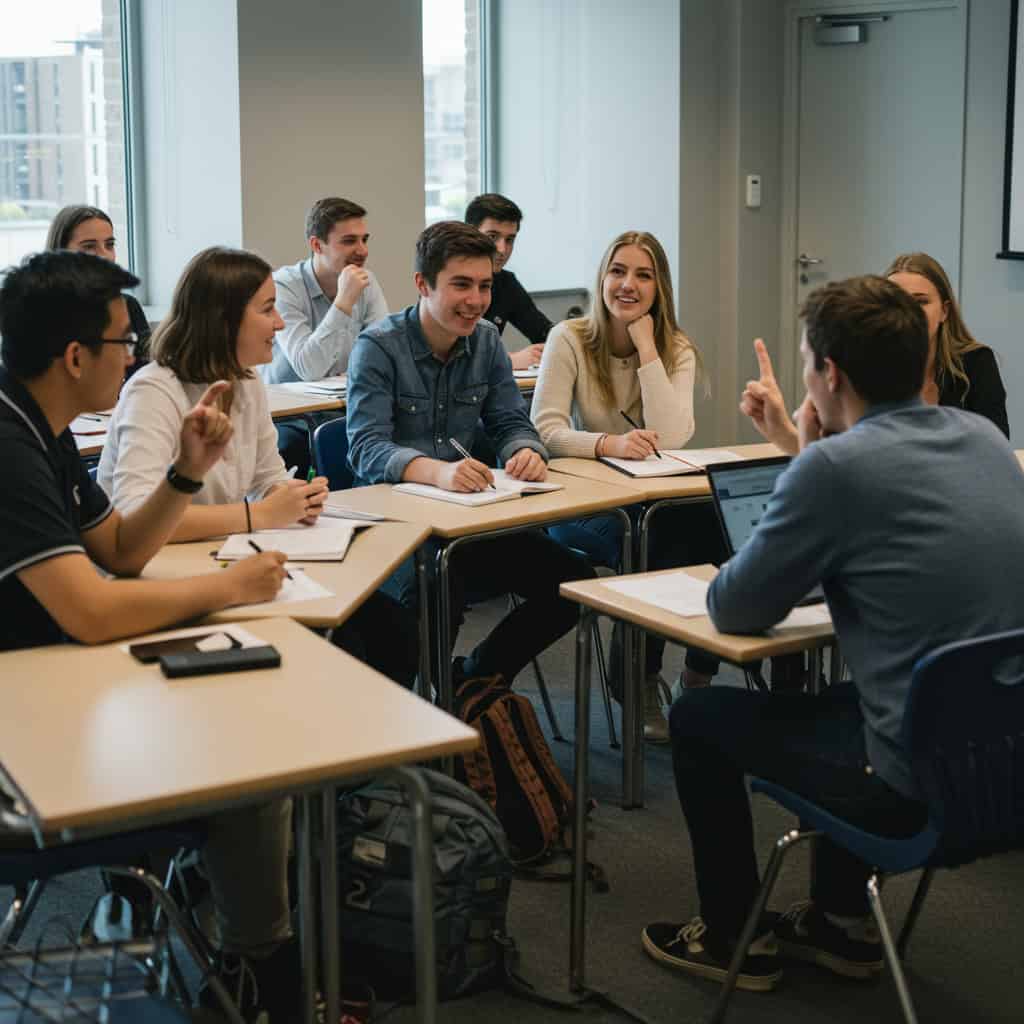
Mastering the art of communication involves clearly expressing ideas, actively listening, and working effectively with others. Activities like group projects, presentations, and classroom discussions help students hone these essential skills. Strong communication abilities are crucial for success in nearly every aspect of life. Effective communication is a fundamental quality for leaders at all levels, making it a critical educational win beyond grades.
4. Cultivating Curiosity
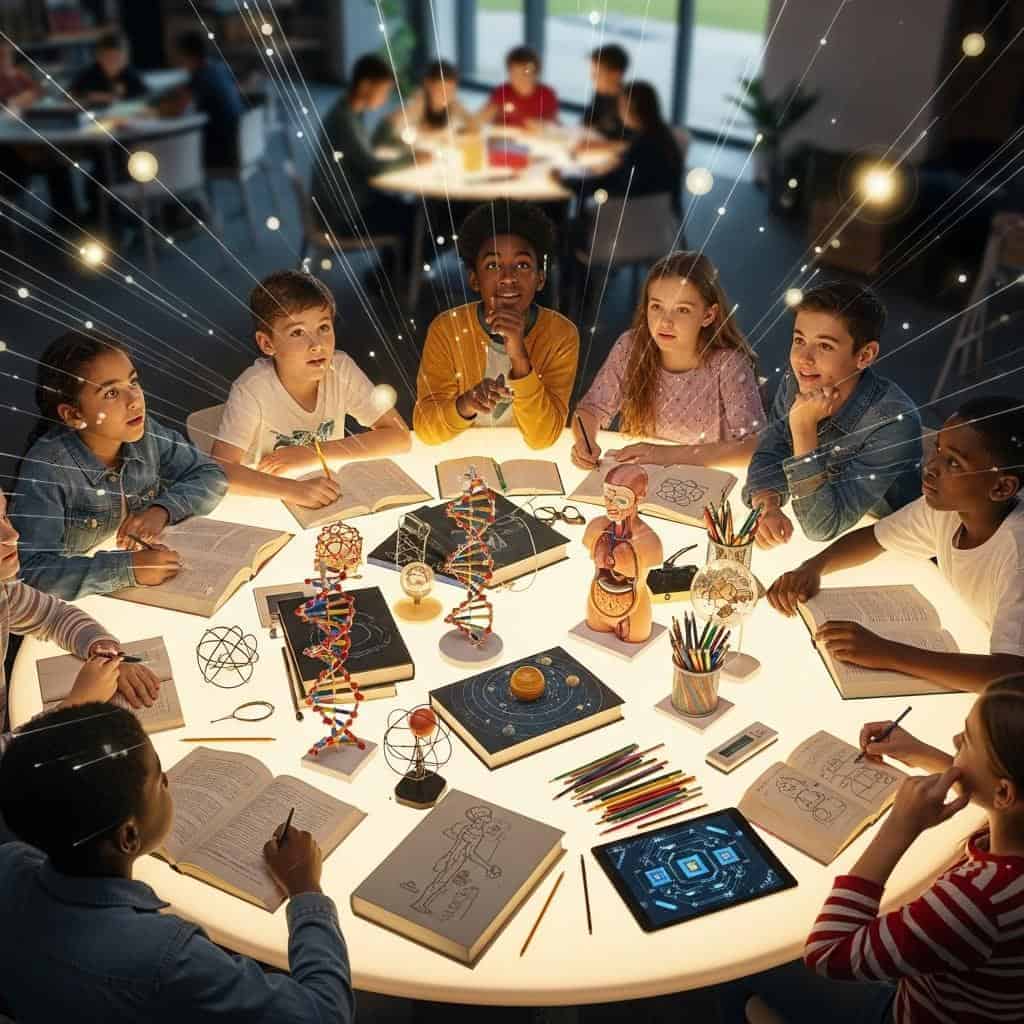
Curiosity inspires students to ask questions and explore topics beyond the classroom syllabus, fueling a genuine love for learning. This inquisitiveness drives creativity and innovation, helping individuals adapt to new situations throughout life. Curiosity not only enhances well-being but also fosters personal growth, making it a crucial educational outcome that extends far beyond test scores.
5. Practicing Empathy
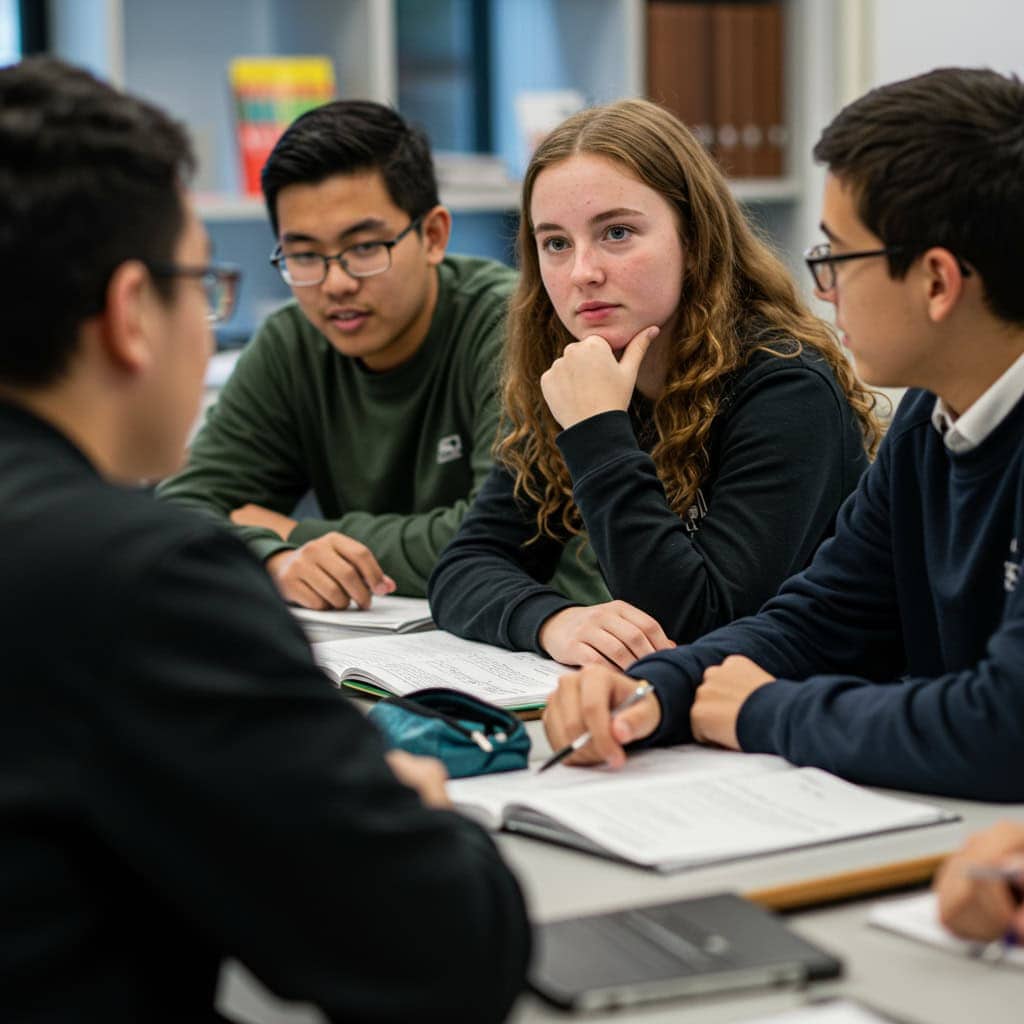
Empathy is cultivated when students encounter diverse perspectives through classroom discussions and literature. Understanding others’ feelings and viewpoints nurtures compassion and strengthens social bonds. This skill enhances teamwork and leads to healthier, more respectful relationships. Teaching empathy helps students become more considerate and effective collaborators, making it a vital educational outcome that supports both personal growth and community well-being.
6. Mastering Time Management

Learning to balance schoolwork, extracurricular activities, and personal time is a crucial skill developed during education. Effective time management not only boosts productivity but also helps reduce stress and prevent burnout. Students who master this skill can prioritize tasks, set realistic goals, and maintain a healthier work-life balance. Strong time management abilities are essential for success in both academic and professional settings.
7. Fostering Creativity

Creative thinking empowers students to approach problems with fresh perspectives and express themselves uniquely. Engaging in activities such as art, music, and creative writing unlocks imagination and nurtures innovation. Arts education plays a vital role in developing these skills, enabling students to think outside the box and adapt to new challenges throughout their lives.
8. Learning Goal Setting

Setting realistic, achievable goals gives students a sense of direction and purpose. Whether aiming for milestones in academics, sports, or personal development, this process builds confidence and motivation. Tracking progress helps students develop persistence and learn from setbacks, fostering a habit of self-reflection. Effective goal setting is a critical life skill that supports personal and professional growth far beyond the classroom.
9. Embracing Failure as Growth

Viewing failure as an opportunity to learn and improve is a powerful lesson developed in school. Growth mindset principles teach students to see mistakes not as setbacks, but as essential steps toward mastery. This approach fosters resilience and continuous self-improvement. Embracing failure fuels motivation and achievement, helping students thrive both academically and personally.
10. Enhancing Digital Literacy
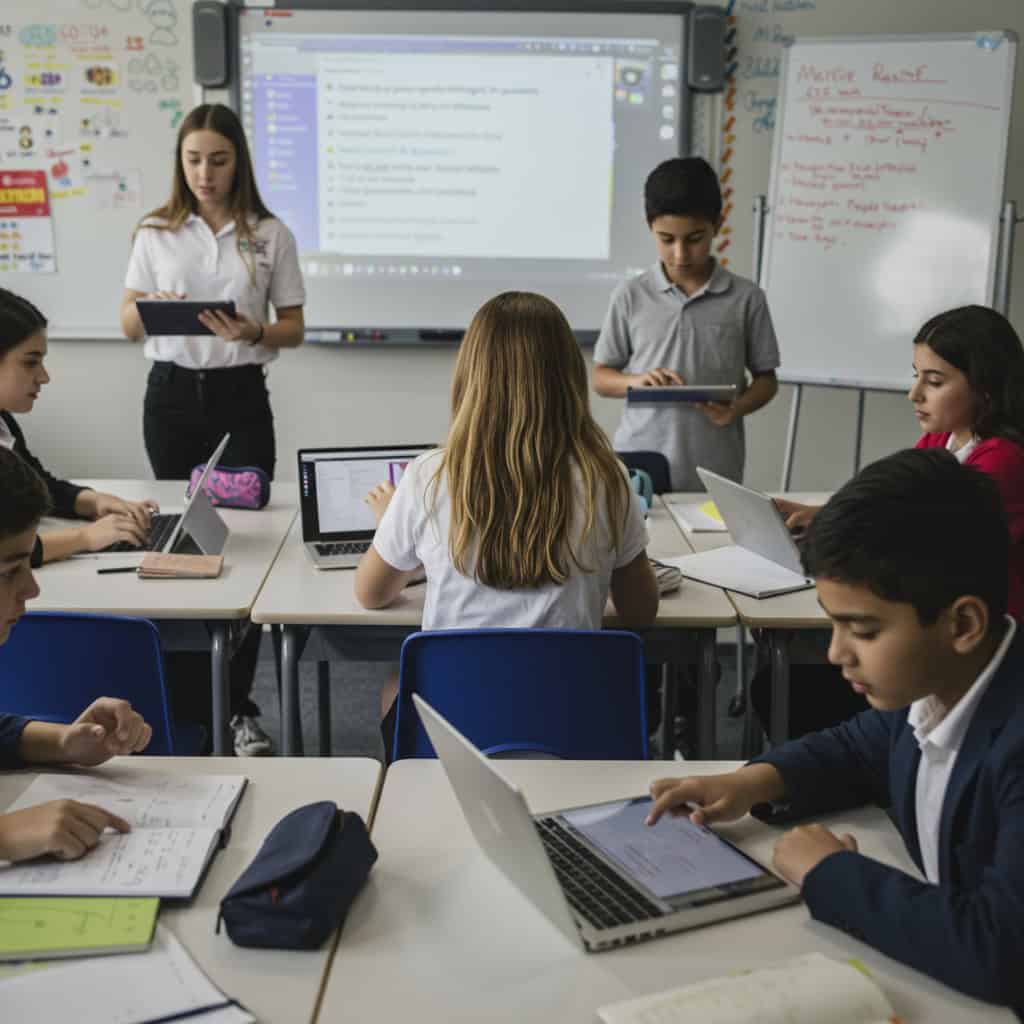
In an increasingly digital world, knowing how to navigate online resources, evaluate the credibility of information, and use technology responsibly is essential. Developing digital literacy in school ensures students are prepared to communicate, research, and collaborate effectively in modern society. These skills empower learners to become informed, ethical digital citizens, ready to succeed in both academic and professional environments.
11. Building Leadership Skills
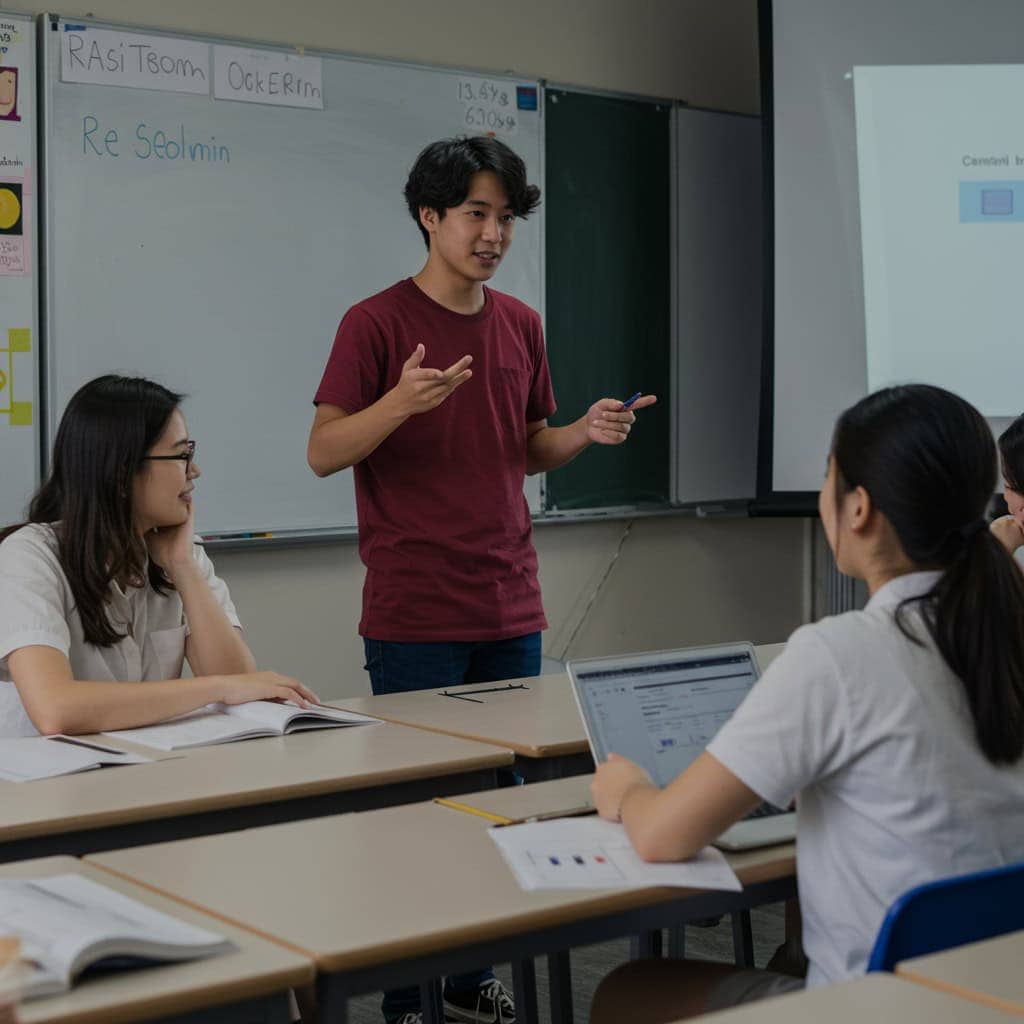
Taking on roles such as class representative or team captain allows students to develop essential leadership skills. By organizing activities, motivating peers, and taking initiative, students learn how to guide and inspire others. These experiences build confidence and prepare young people for future opportunities. Leadership qualities are strongly linked to long-term success in both personal and professional settings.
12. Strengthening Ethical Decision-Making

Learning to make choices rooted in integrity, fairness, and responsibility is a vital aspect of education. Whether navigating group projects or personal conduct, students who develop strong ethical decision-making skills are better equipped for future challenges. Fostering ethics in education helps shape principled individuals who contribute positively to their communities.
13. Nurturing Social Connections

Forming friendships and building supportive networks are integral parts of the educational experience. Strong social connections help students feel included, supported, and valued, contributing significantly to emotional well-being and personal growth. Positive social relationships in school environments are closely linked to better mental health and overall life satisfaction, making them an essential educational win beyond academic performance.
14. Encouraging Self-Advocacy

Learning to express one’s needs, ask for help, and communicate concerns to teachers or peers is a vital life skill. Practicing self-advocacy in school empowers students to take charge of their learning and personal growth. This ability fosters independence, builds confidence, and helps students navigate challenges more effectively. Self-advocacy is crucial for success in both academic and real-world situations.
Conclusion
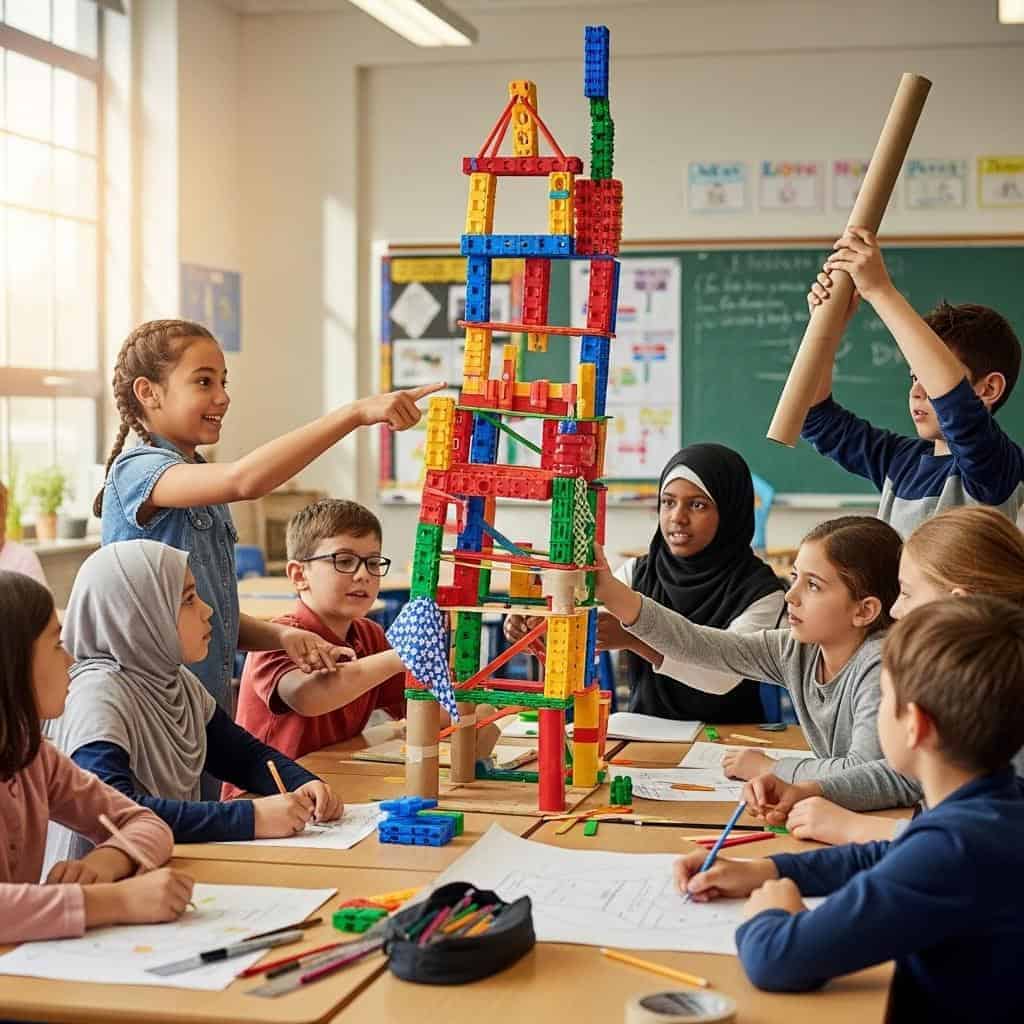
Recognizing achievements beyond grades helps redefine what true educational success looks like. Focusing on skills such as resilience, creativity, empathy, and leadership ensures students develop into well-rounded, capable individuals. These wins lay the groundwork for lifelong learning and personal fulfillment, preparing students for the complexities of the real world. Embracing a broader perspective on achievement, enriches both school experiences and life beyond the classroom.
.article-content-img img { width: 100% }




